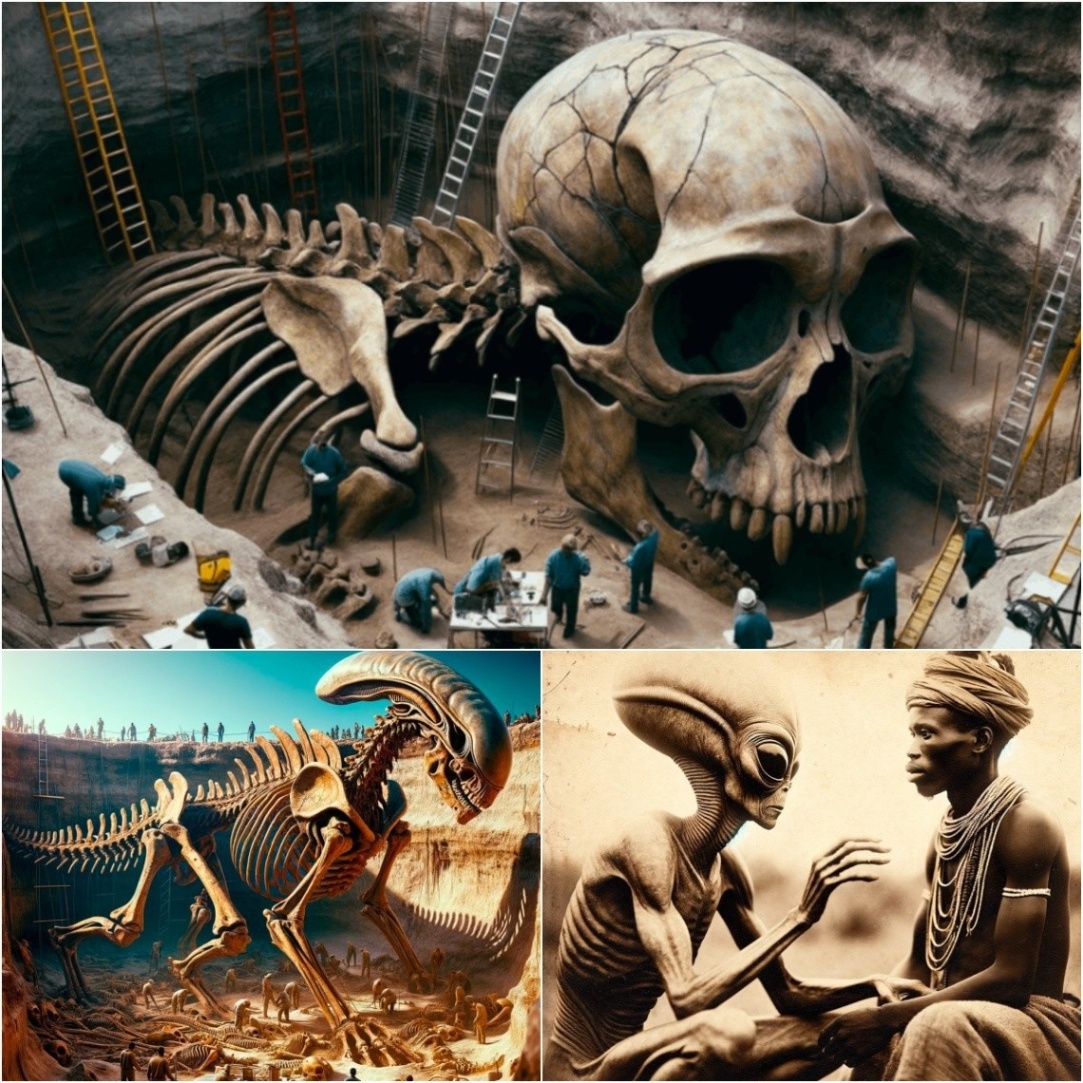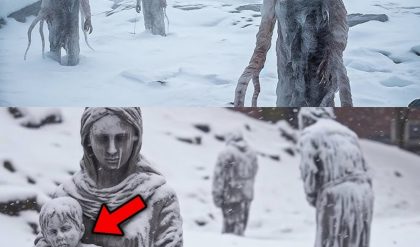The recent discovery of giant skeletons in a remote excavation site has reignited ancient alien theories, sparking renewed debate and intrigue in the scientific and speculative communities alike. These colossal remains, which defy conventional historical and anthropological understanding, have led many to reconsider the possibility of extraterrestrial influences in early human history. Here’s a detailed exploration of the discovery and its potential implications.

The giant skeletons were unearthed during an archaeological dig in an area previously thought to hold little significance. The site revealed not only massive skeletal remains but also artifacts and structures that seem to suggest an advanced, ancient civilization. The scale of the skeletons and their accompanying finds have captured the imagination of researchers and theorists alike.
The most striking feature of the discovery is the size of the skeletons. Some bones measure over 12 feet in length, with proportions significantly larger than any known human or hominid species. The skeletal structure indicates that these beings were much larger and potentially more powerful than modern humans.
Alongside the skeletons, researchers found oversized artifacts, including tools, weapons, and ceremonial objects. These items appear to have been created for beings of extraordinary size and strength, suggesting a highly developed and specialized society.
The excavation also uncovered large-scale architectural remains that appear to have been designed to accommodate these giants. Massive stone blocks and unusual construction techniques point to a civilization capable of monumental engineering feats.

The discovery has reignited interest in ancient alien theories, which propose that extraterrestrial beings visited Earth in ancient times and had a profound impact on human history. Here’s how the find ties in to these theories:
The sheer size of the skeletons challenges conventional understanding of human evolution and capabilities. Some theorists suggest that such beings could have been the result of genetic experimentation by extraterrestrials or advanced beings.
The presence of sophisticated artifacts and large-scale construction suggests a level of technological development that some argue could be beyond the reach of early human societies. This has led to speculation that advanced technology may have been introduced by alien visitors.
* **Cultural Parallels:** Many ancient cultures have myths and legends about giant beings or gods who descended from the heavens. The discovery of these giant skeletons adds weight to theories that these legends might be based on real encounters
The scientific community is cautious about the implications of the find. While the discovery has sparked interest, researchers emphasize the need for rigorous analysis and verification. Radiocarbon dating, genetic studies, and detailed examinations will be crucial to confirm the authenticity and origins of the remains.
The find has captivated the public’s imagination, with media coverage fueling speculation about ancient aliens and lost civilizations. Documentaries, books, and online forums have all seen a surge in interest as people seek to understand the potential connections between the giant skeletons and extraterrestrial theories.
Despite the excitement, there is significant skepticism regarding the ancient alien theories. Critics argue that the giant skeletons and artifacts could be misinterpreted or that alternative explanations, such as undiscovered human civilizations or natural anomalies, should be considered.

The discovery of giant skeletons has reignited ancient alien theories and posed new questions about our understanding of history. As researchers delve deeper into the findings, the debate over extraterrestrial influence and advanced ancient civilizations is likely to continue. Whether these revelations lead to a revolutionary shift in historical understanding or remain a fascinating anomaly, they represent a significant moment in the exploration of human origins and our place in the universe.





